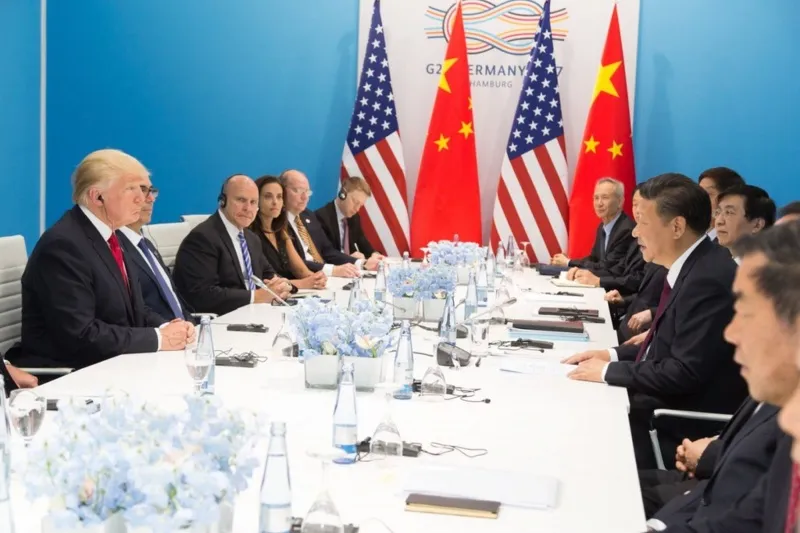Donald Trump has long earned a reputation as an unpredictable and impulsive leader whose actions are sometimes difficult for even the most experienced analysts to predict. His figure is associated with the “wild card” - when unexpected decisions can dramatically change the course of events. However, leaving aside characterological nuances, let us try to understand his possible policy toward China.
A combination of economic and political pressure
Trump's anti-China course is likely to be built on a combination of two strategies: economic and political pressure, with an emphasis on the former. There is a growing demand in American society for confrontation with Beijing, with the main accusations related to economic issues. China is demonized as a force undermining the American economy, destroying jobs, and manipulating the exchange rate. These arguments are becoming the basis for an aggressive rhetoric against Beijing, both within the administration and in the political community around Trump.
Most notably, the battle over toughness toward China has become a kind of competition among Trump's intellectual and political allies. For example, economist Todd Buchholz suggested accusing Beijing of undervaluing the yuan and demanding the write-off of $90 billion of debt held in U.S. Treasury bonds. However, such an idea, apart from legal obstacles (the 14th Amendment prohibits questioning the legitimacy of government debt), ignores the obvious questions: why should China recognize currency manipulation or agree to such “reparations”?
These proposals reflect the mood within the Trump camp rather than an actual plan. They do, however, indicate a high level of dissatisfaction with the success of the Chinese economy and growing concerns about its global influence.
China as a strategic threat
Most individuals associated with the emerging Trump administration are known for their intransigent stance toward Beijing. For example, potential national security adviser Michael Waltz sees China as an existential threat to the United States. He has stated that the CCP has already engaged in a cold war with America, seeking to undermine the liberal world order established after World War II. Moreover, Waltz considered China even more dangerous than the USSR because of its combination of economic and military power. The Soviet Union possessed only the latter.
A similar position is held by Senator Marco Rubio, who is seen as a contender for Secretary of State. He has long been under personal sanctions from China, and his statements emphasize the economic nature of the conflict with Beijing. In his view, China threatens the U.S. through economic pressure and influence over American society.
This anti-China line can also be traced in Trump's own actions. Even during his first term, his administration adopted a number of key documents such as the “National Defense Strategy” and “Outlines of the U.S. Strategy for the Indo-Pacific Region.” These explicitly labeled China as a strategic competitor and called on the US to combat Beijing's “predatory economy” and discredit the Belt and Road Initiative.
Trump's leadership and his approach to his team
The anti-China recruitment may be both a tactical maneuver and a reflection of Trump's own beliefs. Perhaps he intends to use the “tough negotiators” as a backdrop against which his own position will appear more moderate. Or perhaps Trump simply likes his team to share his views, avoiding unnecessary controversy.
Either way, Trump's actions are hard to calculate. His first term has demonstrated a penchant for spontaneous, sometimes impulsive decisions in both geopolitics and economics. It is unlikely that anything in his approach has changed dramatically in the meantime.
Trump's China policy is likely to be aggressive, with an emphasis on economic confrontation. His course is shaped by public demand multiplied by the rigidity of his inner circle.
AUTHOR: Jan Karnitsky
Source - Reporter

